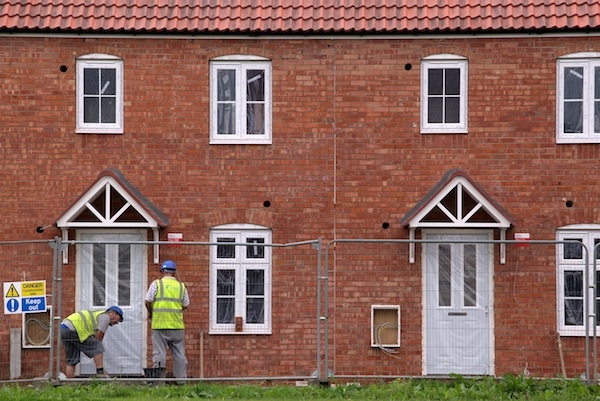Does Theresa May want to build more homes? The problems that the Prime Minister faces on this matter were summed up very neatly by two different Tory backbenchers at Prime Minister’s Questions today. She was asked by Tom Tughendhat whether she would ‘take the chance to build more homes’, to which she replied that ‘my hon. friend makes a very important point about investing in infrastructure, particularly in housing. We are doing exactly that, which is why we have seen more than a quarter of a trillion pounds in infrastructure spending since 2010’, though she didn’t specifically mention housing. Later, Theresa Villiers asked the Prime Minister to ‘assure the House that the Government she leads will never weaken protection for the green belt’. May replied:
‘We have been very clear about our position in relation to the green belt, and indeed we confirmed that in the housing White Paper that we set out, where we were very clear about that too. We want more homes to be built in this country. It is important that we see more homes being built, particularly in London, but there are many opportunities to do that that do not affect the green belt.’
So on the one hand there are Tories who want more homes, and on the other there are Tories who don’t want any building on the green belt. It is well-known that the Prime Minister and her Chancellor do not see eye-to-eye on the matter of the green belt, or indeed on wider issues of planning reform. May fears a Tory revolt and backlash from normally supportive press if she weakened the protections for the doughnuts of ‘green’ land around cities which stop urban sprawl. Hammond believes that the green belt has to be looked at if there is to be a proper housebuilding programme.
But it’s not as though green belt building is really what upsets people right now, anyway. Often there is confusion about the difference between green belt and green field, but also the green belt has become a proxy for those worried about inappropriate development – and those who just don’t want any development in their back yards. If May is worried about a backbench revolt, she can’t just expect that protections for the green belt will quell that: some Tory MPs will come in for a drubbing from their constituents for an increase in local housebuilding regardless of where those homes are being built. If those MPs then threaten to rebel on votes – and not all planning reform actually requires votes in the House of Commons – then May could reasonably appeal to the Labour party to help her out, given it too makes a fair bit of noise about the need for more new homes. Jeremy Corbyn has said he is sceptical about building on the green belt, but anything beyond that which is aimed at getting a large number of new homes built would be difficult for Labour to oppose without looking incredibly churlish. In which case, perhaps May need not worry about a Tory revolt on housebuilding, given the consequences of the housing crisis are far worse than a handful of grumpy backbenchers.







Comments